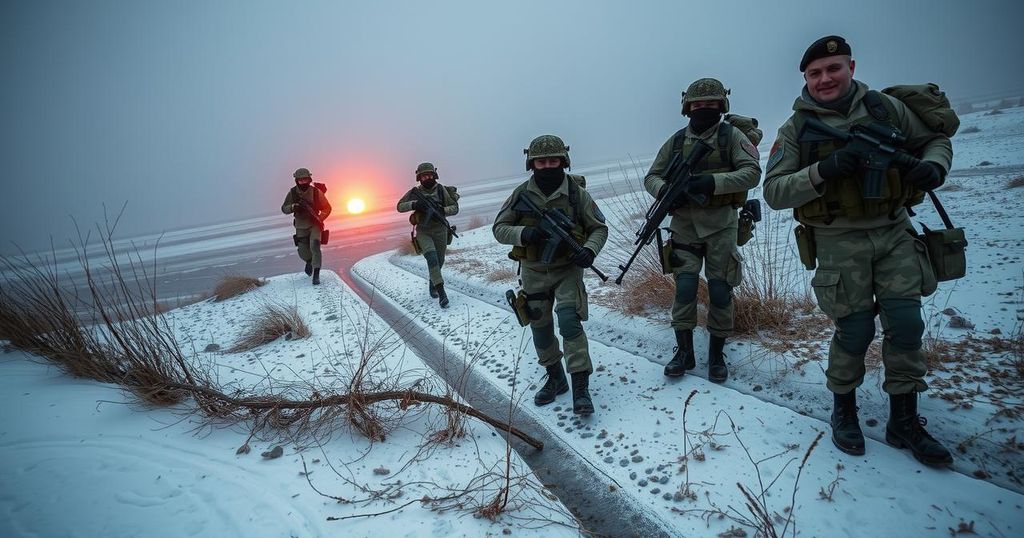Russia Initiates Withdrawal of Military Forces from Syria Amid Geopolitical Changes

U.S. and Western officials report that Russia has initiated a large-scale withdrawal from Syria, marking a notable shift after the ousting of Bashar al-Assad. This move involves the relocation of military equipment and personnel, with uncertainty about its permanence. Additionally, Russia is transferring naval assets to Libya to maintain military access to the Mediterranean amidst changing dynamics in the region.
The withdrawal of Russian military forces and equipment from Syria has commenced, marking a significant shift in the geopolitical landscape following the ousting of former Syrian President Bashar al-Assad. According to U.S. and Western officials, this large-scale withdrawal began last week; however, the permanence of this move remains uncertain. Intelligence reports suggest that Russian officials are assessing whether Hayat Tahrir al-Sham, the primary rebel group currently controlling Syria, may be amenable to negotiations that would enable Russia to retain access to critical military bases in the region.
Kremlin spokesman Dmitry Peskov emphasized the importance of maintaining contact with rebel factions in Damascus, citing the necessity of safeguarding Russian facilities and personnel. Reports indicate that Russia has begun transferring naval assets to Libya and exerting pressure on Libyan National Army commander Khalifa Haftar to secure a foothold at a port in Benghazi. Such actions may be imperative for Russia, as the loss of its Tartus base in Syria would leave it without a Mediterranean port for projecting military power or facilitating illicit material exchange.
Recent satellite imagery has shown preparations for the evacuation of Russian aircraft and military assets from Syria, including heavy transport planes and key equipment such as a Ka-52 attack helicopter. U.S. Secretary of State Antony Blinken declined to comment directly on the withdrawal, but Pentagon officials noted that American forces have enjoyed increased operational flexibility in Syria as a result of diminished Russian air defenses, allowing for renewed anti-ISIS operations in the region.
The Russian military has played a significant role in the Syrian conflict, notably supporting the Assad regime for several years. This support has included deploying troops and advanced weaponry to bolster the Syrian government against various rebel factions. The recent withdrawal raises crucial questions regarding the future of Russian influence in Syria, particularly in light of the escalating dynamics involving key military bases in the region and the ongoing threat from ISIS. Following the ouster of Bashar al-Assad, who was a pivotal ally for Moscow, the Russian military’s repositioning signals a potential reevaluation of its strategies in the Middle East. Moreover, securing a presence in Libya warrants attention, as Russia seeks to maintain a foothold in the Mediterranean amidst growing NATO activities.
In conclusion, the recent large-scale withdrawal of Russian military forces from Syria introduces a transformative element to the conflict’s dynamics. As Russian officials explore potential negotiations with the ruling rebel factions, their strategic moves towards Libya illustrate a broader ambition of maintaining military influence in the Mediterranean. U.S. forces may benefit from this operational shift, facilitating increased anti-ISIS activities unimpeded by Russian air defenses, while the long-term implications for Russian presence in the region remain to be seen.
Original Source: www.cnn.com








